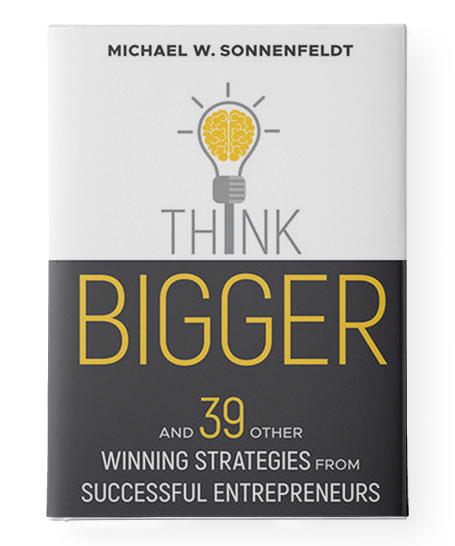How could it be otherwise?
There are two traits I find that almost all entrepreneurs have in common: They are creative—sometimes that creativity takes the form of expressing itself through the arts, but it always comes out in how the entrepreneur solves business problems—and they are curious.
You have to believe the two are related.
It is amazing how much you’ll learn if you always ask “how” and “why” whenever you talk to people.
Sometimes what you learn can take you directly to a new idea for a business—“hmmm, you say what everybody you knows wants is an app that does X”—or sometimes it is just an interesting thought to store away for later use.
Here’s an example of that. One of the country’s richest men—he is an entrepreneur in the retail space—takes photographs wherever he goes. It might be of a shop. But it could be of an interesting building, a unique piece or wallpaper, or a 300-year-old cobblestone street.
“More than half the time, I don’t even know why I am taking the picture,” he says.
He has hundreds of shoeboxes filled with pictures he has taken over the years and dozens of flash drives filled with them as well.
Periodically, he will take out the pictures and juxtapose them in endless combinations. Sometimes, nothing comes as a result. But sometimes they will trigger a thought for a new kind of store, or the redesign of an old one.
Native curiosity is typically a key factor in how entrepreneurs are able to see potential businesses where no one else does. That curiosity-powered engine is also what drives a business founder to come up with innovations to beat the competition or even become a billionaire.
According to UBS and PwC’s joint report on billionaires, “Curiosity is a core skill of the self-made billionaires we met . . . constantly driving them to look for unmet customer needs that create significant business opportunity.”
Yes, entrepreneurs need an idea, they need passion, and they need self-confidence and grit to keep their businesses afloat, as we have talked about before. But to grow a company, to stay out in front of the competition, to catch the eye of a buyer, and certainly to expand your first business and potential start a second one (or a third or…), you have to show some imagination in figuring out how to better serve your clients and create new customers and new products and even new product categories and business models.
That’s where curiosity can become an effective business tool for refocusing your growth strategy.
How good are you at seeing what isn’t there? Looking at one thing and seeing another is one of the best definitions of imagination I know.
Here’s a fun exercise to hone your curiosity: Give yourself 90 seconds to identify five market needs. (Take all the time you want to figure out how to fill them.)
Curiosity really can be a competitive advantage.
And I would add one more thing about this, based on my experience of working with, studying, and adopting best practices from superior entrepreneurs: Lifelong learners—people who try to gain a little bit of knowledge from every encounter than have—have more fun.

A NEW RESOURCE FOR ENTREPRENEURS
Discover Think BIGGER—a new book by Wiley and part of the Bloomberg series. This book is a must-have for any entrepreneur. Think BIGGER will show you the skills to grow wealth that can be applied to making the world a better place.